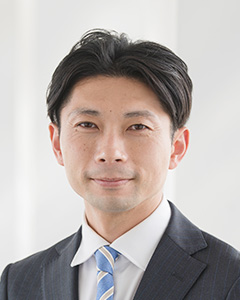- Home
- Education
- Faculty
- Faculty of Cultural Policy and Management
- SAEKI Yasutaka
Faculty

SAEKI Yasutaka
Associate Professor
- Department of Intercultural Studies
Research Keywords:
Migration Policy, Social Integration, Labor Economics, Economics of Education, SDGs/ESG
| Degrees | Ph.D. (Economics), Kwansei Gakuin University (2016) Master of Arts, Columbia University in the City of New York (2013) |
|---|---|
| Selected Professional Experiences |
|
| Research Fields | Migration Studies |
| Major Publications |
|
| Academic Organizations | Japan Association for Migration Policy Studies |
Message
Member of a research team that has conducted a large-scale follow-up panel survey for three years presenting an overall picture of technical interns and specified skilled workers as "residents" and "workers" here in Japan. In addition, we coordinate the industry-government-academia-government dialogue platform and discuss Evidence-based Migration Policy-Making. Our project team's preliminary analysis shows that although a wage difference exists between Japanese and foreign workers, the difference becomes considerably smaller when controlling for personal attributes such as age, years of education, and gender. Unfortunately, government surveys do not collect information on human relationships, how they relate to the local community, their lifestyle habits, and other aspects of being a "resident." In addition, there is still no quantitative research on the career development of technical interns and specified skilled workers. Therefore, our research project will explore models for accepting technical interns and specified skilled workers through sustainable approaches with a co-creation platform comprising industry, government, academia, and NPOs.
